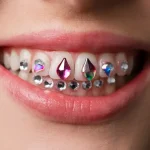Caring for the Ageing Smile: Why Dental Health Matters
As we age, maintaining dental health becomes increasingly important for overall well-being. Elderly individuals face unique dental challenges that can significantly impact their quality of life. From tooth decay to gum disease, these issues require careful attention and proactive management. The goal of this guide is to provide comprehensive information and actionable advice to support elderly dental care and improve oral health outcomes for older Australians.
Common Dental Problems in Older Persons
Tooth Decay in Older People
Tooth decay is a prevalent dental issue among the old. It occurs when bacteria in the mouth produce acids that erode the tooth enamel, leading to cavities.
- Factors Contributing to Higher Risk: Older adults may experience increased tooth decay due to factors such as reduced saliva production, poor oral hygiene, and dietary habits high in sugars.
- Preventive Measures and Treatments: Regular brushing and flossing, using fluoride toothpaste, and routine dental check-ups can help prevent decay. Treatments may include fillings, crowns, or root canals, depending on the severity.
Gum Disease in Seniors
Gum disease, including gingivitis and periodontitis, is common in older adults. It involves inflammation and infection of the gums that can lead to tooth loss if untreated.
- Causes and Symptoms: Plaque buildup, smoking, certain medications, and systemic health conditions contribute to gum disease. Symptoms include swollen gums, bleeding while brushing, and receding gums.
- Prevention and Management Strategies: Maintaining good oral hygiene, regular dental visits, and quitting smoking can prevent and manage gum disease. Professional cleanings and, in some cases, surgical interventions may be necessary.
Denture Issues in older persons
Dentures can significantly enhance quality of life for those with missing teeth, but they also come with potential problems.
- Common Problems: Ill-fitting dentures, sore spots, and difficulty chewing are frequent issues faced by denture wearers.
- Tips for Proper Denture Care: Regular cleaning and proper storage of dentures, along with periodic adjustments by a dental professional, can prevent problems.
- When to Seek Professional Help: If dentures cause persistent discomfort or become loose, it’s essential to consult a dentist for adjustments or replacements.
Dry Mouth in Older Adults
Dry mouth, or xerostomia, is a condition often experienced by older adults due to medications or health conditions.
- Causes of Dry Mouth: Common causes include antihistamines, blood pressure medications, and conditions like diabetes or Sjögren’s syndrome.
- Impact on Oral Health: Dry mouth increases the risk of tooth decay, gum disease, and oral infections.
- Remedies and Management Tips: Staying hydrated, using saliva substitutes, and avoiding caffeine and alcohol can help manage dry mouth. Regular dental visits are crucial for monitoring and treatment.
Oral Health Problems in Older persons and Their Prevention
Maintaining Oral Health in Older Persons
Consistent oral hygiene is vital for preventing dental problems in older adults.
- Daily Oral Hygiene Practices: Brushing teeth twice daily with fluoride toothpaste and flossing regularly are fundamental practices.
- Importance of Regular Dental Check-ups: Regular check-ups allow for early detection and treatment of potential issues, preventing complications.
- Dietary Recommendations for Maintaining Oral Health: A balanced diet rich in vitamins and minerals supports oral health. Limiting sugar and acidic foods can reduce the risk of decay and gum disease.
Oral Infections in Seniors
Oral infections are a significant concern for the older persons, impacting overall health.
- Types of Oral Infections: Common infections include oral thrush and periodontal abscesses.
- Causes and Symptoms: Weakened immune systems, poor oral hygiene, and existing health conditions can lead to infections, with symptoms like pain, redness, and swelling.
- Prevention and Treatment Options: Good oral hygiene and regular dental care are crucial. Antifungal or antibiotic treatments may be necessary for infections.
Tooth Loss in Seniors
Tooth loss is a common issue among the older persons, affecting their nutrition and self-esteem.
- Common Causes of Tooth Loss: Causes include advanced gum disease, tooth decay, and trauma.
- Impact on Overall Health and Quality of Life: Missing teeth can lead to difficulties in eating, speaking, and social interactions, impacting nutrition and mental health.
- Solutions and Preventive Measures: Dental implants, bridges and implant retained dentures are options for replacing lost teeth. Maintaining oral hygiene and regular dental visits can prevent tooth loss.
Impact of Oral Health Problems on Overall Health in Old Age
Link Between Oral Health and Systemic Health
Oral health is closely linked to overall health, with potential impacts on systemic conditions.
- Connection with Conditions like Diabetes and Cardiovascular Disease: Poor oral health can exacerbate conditions like diabetes and heart disease. Inflammation from gum disease can worsen these issues.
- How Poor Oral Health Can Affect Overall Well-being: Oral infections and chronic pain can lead to systemic inflammation and reduced quality of life.
- Evidence-Based Information and Scientific Studies: Research supports the connection between oral health and systemic health, highlighting the importance of dental care in preventing broader health issues.
Oral Health and Quality of Life
Dental problems can significantly impact the psychological and social well-being of older adults.
- Psychological and Social Impact of Dental Problems: Issues like tooth loss and gum disease can lead to embarrassment, social withdrawal, and depression.
- Importance of Maintaining Good Oral Health for a Better Quality of Life: Good oral health contributes to confidence, social interactions, and overall happiness.
- Practical Tips for Improving Oral Health and Overall Lifestyle: Encouraging regular dental care, healthy eating, and social engagement can improve quality of life.

Effective Oral Hygiene Practices for Old Individuals
Brushing and Flossing Techniques
Proper oral hygiene techniques are crucial for preventing dental issues in older adults.
- Proper Techniques for Brushing and Flossing: Use a soft-bristled toothbrush and gentle circular motions. Floss carefully between teeth to remove plaque.
- Recommendations for Dental Products Suitable for Old Individuals: Electric or manual toothbrushes, fluoride toothpaste, and interdental brushes can be beneficial for seniors.
Professional Dental Cleanings and Check-ups
Regular professional care is essential for maintaining oral health in old age.
- Importance of Regular Visits to the Dentist: Dental professionals can detect and address issues before they become serious.
- What to Expect During a Dental Check-up: A typical check-up includes cleaning, examination, and personalised care recommendations.
- Frequency of Visits and Personalised Care Plans: Older people should visit the dentist every six months or as recommended for their specific needs.
Dental Care Tips for Older Persons with Dental Problems
Managing Dental Pain in Older Adults
Dental pain is a common issue that can significantly affect quality of life.
- Common Causes of Dental Pain: Causes include tooth decay, gum disease, and dental abscesses.
- Home Remedies and Professional Treatments: Over-the-counter pain relievers, warm salt water rinses, and professional treatments can alleviate pain.
- When to Seek Emergency Dental Care: Persistent or severe pain requires immediate dental attention.
Oral Care Solutions for Specific Dental Issues
Tailored care is essential for addressing the unique dental needs of older adults.
- Tailored Advice for Managing Dry Mouth, Gum Disease, and Other Issues: Hydration, specific oral hygiene products, and regular professional care are key strategies.
- Use of Fluoride Treatments and Other Preventive Measures: Fluoride treatments and dental sealants can protect against decay.
- Recommendations for Over-the-Counter and Prescription Products: Dentists may recommend products like fluoride rinses, antimicrobial mouthwashes, and prescription medications for specific issues.

Promoting Lifelong Oral Health: A Final Word
Ensuring good dental health in older adults requires proactive care and attention. By understanding and addressing the unique challenges faced by the older persons, we can enhance their quality of life and overall well-being. Remember, regular consultation with dental professionals is vital for personalised advice and effective treatment strategies.


